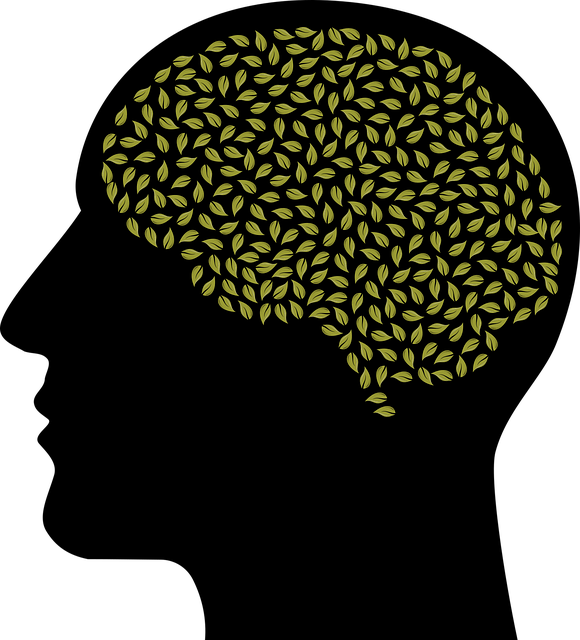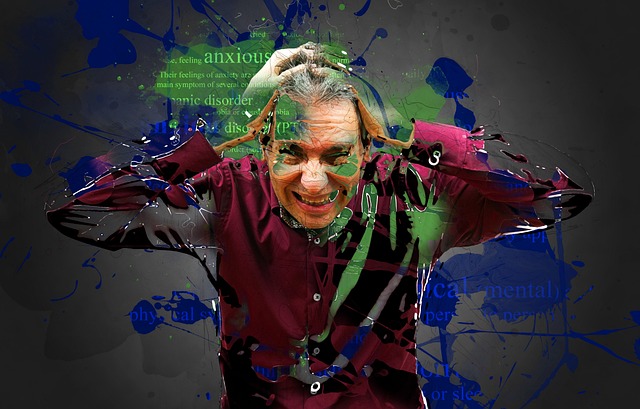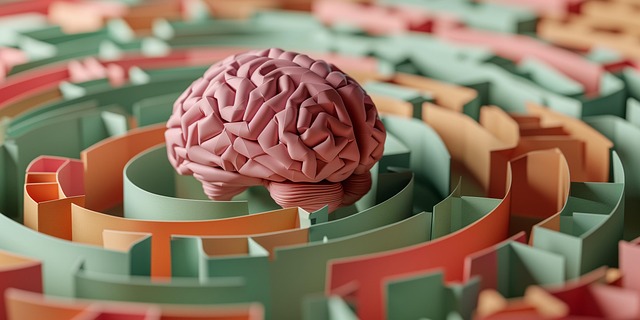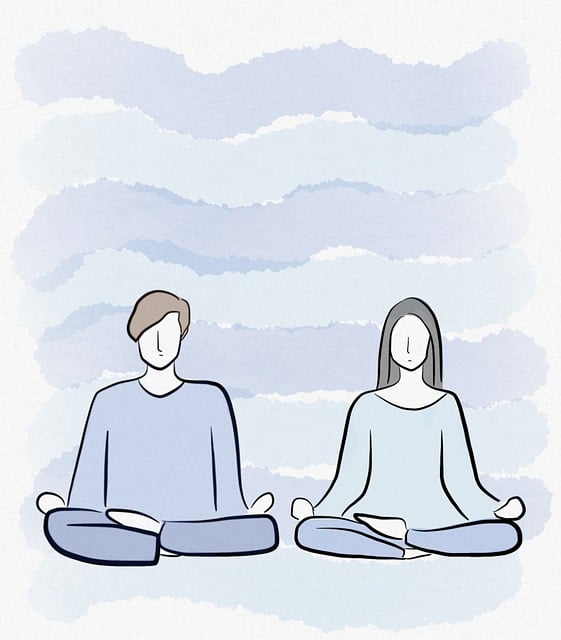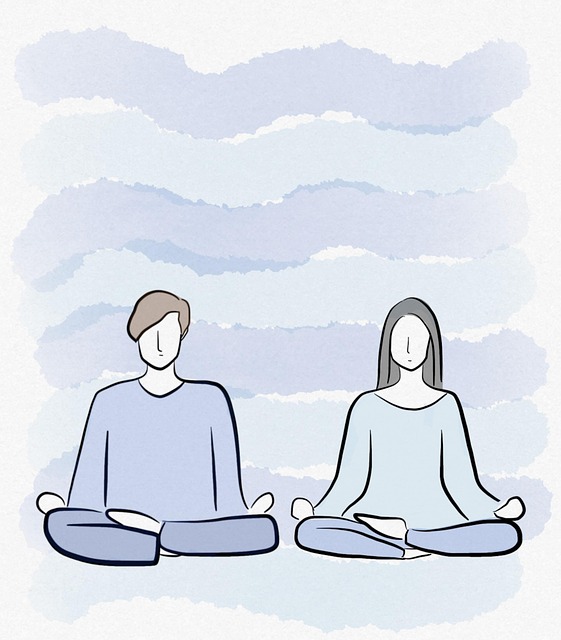Understanding mental wellness needs is crucial for developing effective self-care routines. This involves exploring emotions, identifying triggers, and addressing underlying issues like relationship problems or therapy history. Therapy, such as Centennial Relationship Issues Therapy, equips individuals with insights into thoughts, emotions, and behaviors, leading to increased self-awareness and personalized stress management strategies. Integrating practices like mindfulness, exercise, and journaling, tailored through cultural competency training, creates a sustainable self-care routine. Navigating challenges with therapy helps process root causes and develop coping strategies, fostering resilience for long-term mental wellness.
“Uncover the path to optimal mental wellness with our comprehensive guide to self-care routine development. In today’s fast-paced world, prioritizing your psychological well-being is paramount. This article takes you on a journey from personal assessment to integrating sustainable practices.
We explore the transformative power of therapy in fostering self-care and highlight essential components for a holistic plan. Learn strategies to navigate challenges and maintain long-term mental resilience, ensuring a balanced and fulfilling life. Discover how to cultivate a century-lasting relationship with yourself through mindful self-care.”
- Understanding Your Mental Wellness Needs: A Personal Assessment
- The Role of Therapy in Building a Self-Care Routine
- Essential Components for a Comprehensive Self-Care Plan
- Integrating Daily Practices: Making Self-Care Sustainable
- Navigating Challenges and Maintaining Long-Term Wellbeing
Understanding Your Mental Wellness Needs: A Personal Assessment

Understanding your mental wellness needs is a crucial step in developing a self-care routine that truly works for you. It involves delving into your unique emotional landscape, identifying triggers and coping mechanisms, and acknowledging any underlying issues such as relationship problems or past therapy experiences. This personal assessment should consider both your current state of mind and historical factors that have shaped your mental health journey.
Centennial relationship issues and past therapy experiences can significantly impact an individual’s ability to manage stress and maintain a positive mindset. By integrating this knowledge into your self-care regimen, you can create a more holistic approach. This might include cultivating practices such as positive thinking, mindfulness, or engaging in advocacy for mental health policy changes that align with your personal journey. Remember, understanding your specific needs paves the way for effective burnout prevention strategies, whether you are a healthcare provider or someone looking to enhance their overall well-being.
The Role of Therapy in Building a Self-Care Routine

Therapy plays a pivotal role in cultivating a robust mental wellness self-care routine. Through regular sessions with a qualified therapist, individuals gain invaluable insights into their thoughts, emotions, and behaviors. This process facilitates self-awareness, enabling people to identify patterns that may hinder their well-being. For instance, Centennial Relationship Issues Therapy can help clients navigate complex interpersonal dynamics, learn healthy coping mechanisms, and develop personalized strategies for stress management.
Moreover, therapy provides a safe space for exploring personal experiences, challenges, and aspirations. Culturally sensitive approaches in mental healthcare practice ensure that diverse perspectives are considered, fostering an inclusive environment. By integrating this knowledge into their daily lives, individuals can construct a holistic self-care routine tailored to their unique needs. This proactive approach, supported by professional guidance, enhances overall Mental Health Awareness and promotes resilience in navigating life’s challenges.
Essential Components for a Comprehensive Self-Care Plan

Developing a comprehensive self-care routine is an essential aspect of maintaining and enhancing mental wellness, especially when navigating through life’s challenges. A well-rounded approach to self-care involves integrating various practices that cater to different aspects of one’s life, much like tending to multiple facets of a vibrant garden. Among the crucial components are regular physical activity, a balanced diet, and adequate sleep – the foundation upon which our mental fortitude stands. These basic needs fuel our bodies and minds, enabling us to better handle stress, enhance mood, and promote overall resilience.
Beyond these foundational elements, cultivating meaningful connections and seeking therapy when needed are vital components. Nurturing healthy relationships serves as a supportive network during both good times and crises, offering guidance and intervention when issues arise, such as those explored in Centennial Relationship Issues Therapy. Additionally, integrating Mind Over Matter principles can be a game-changer in depression prevention and crisis management, empowering individuals to take control of their mental health. By combining these strategies with consistent self-reflection and a willingness to learn new coping mechanisms, one can build a robust self-care routine tailored to their unique needs.
Integrating Daily Practices: Making Self-Care Sustainable

Developing a mental wellness self-care routine is an ongoing process that requires dedication and consistency. To make self-care sustainable, integrating daily practices that support your emotional well-being is key. This could include activities like mindfulness meditation, regular exercise, or journaling—small acts that, when done consistently, have profound effects on reducing stress and preventing depression. By incorporating these practices into your daily life, you’re fostering a centennial relationship with your mental health, where regular care becomes as essential as brushing your teeth.
Consider collaborating with a healthcare provider who offers cultural competency training to tailor self-care strategies that resonate with your unique background and identity. Stress management workshops and similar initiatives can also empower you with tools to navigate life’s challenges. Organizations dedicated to mental wellness often host such events, promoting holistic well-being through education and community support. Embracing these practices not only enhances your personal resilience but also enables you to actively manage your mental health in a way that suits your specific needs and preferences.
Navigating Challenges and Maintaining Long-Term Wellbeing

Navigating challenges is a significant aspect of maintaining long-term mental wellness and cultivating resilience. Many individuals face various obstacles in their personal lives, such as relationship issues or work pressures, which can impact overall wellbeing. Therapy serves as a powerful tool to help process these challenges. Through therapy, one can explore the root causes of distress, develop coping strategies, and gain valuable insights into themselves and their relationships. Building a strong therapeutic relationship, often referred to as a “centennial relationship,” allows for continued support and growth over time.
Incorporating stress reduction methods and compassion cultivation practices into daily routines is essential for sustaining mental wellness. These practices can include mindfulness exercises, meditation, or engaging in activities that foster self-care and empathy towards oneself and others. By prioritizing these habits, individuals can better manage depressive tendencies, enhance emotional resilience, and create a more balanced lifestyle. Remember, maintaining mental wellness is an ongoing journey, and with the right tools and mindset, one can navigate challenges effectively while fostering long-lasting wellbeing.
Developing a mental wellness self-care routine is a transformative journey, especially when supported by therapy. By understanding your unique needs through personal assessment, you can create a comprehensive plan that includes essential components like mindfulness, exercise, and social connections. Integrating these practices into daily life fosters sustainability, just as navigating challenges with the help of Centennial Relationship Issues Therapy strengthens your resilience. Remember, maintaining long-term wellbeing is an ongoing process that requires commitment and adaptability.




